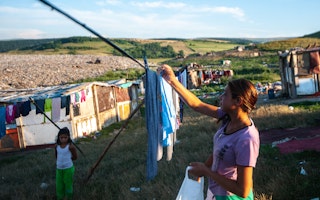What EU Membership Has Meant for Romania
By Neil Campbell
BBC Radio 4’s program Today has been running a series on the impact of European Union membership on countries that have joined, most recently focusing on Romania. The segment featured Heather Grabbe, Director of the Open Society Foundations' office in Brussels, and David Mark, a former Open Society Roma Fellow who now helps Roma organizations in Romania to apply for EU money.
Since joining the EU in 2007, most Romanians have experienced significant improvements in their lives. Many of the country's Roma, however, continue to live in deep poverty, despite the billions of euro in structural and cohesion funds available from the EU. In fact, only four percent of the EU’s commitments to Romania have been dispersed. What prevents the money from reaching those who need it most?
Heather Grabbe, who before joining the Open Society Foundations was senior advisor to the Enlargement Commissioner, analyzed the situation on Today:
"EU membership is always oversold. People expected that when they joined the EU, there would be lots of money for everybody, the economy would improve immediately, corruption would go down. In fact, membership of any international organization cannot give you that overnight. But they are a lot better off than they would have been if they had not done the EU process. Unless you have a really major institution outside, guiding along the way, criticizing where necessary, it is really hard to galvanize domestic politicians, the judges, prosecutors, the police to change things. And that’s why people expected once you join the EU their country would look like Sweden—but of course it doesn’t—it looks like a better version of Romania."
Listen to the full segment and let us know what you think the benefits EU membership brings.

Neil Campbell is director of policy planning for Advocacy at the Open Society Foundations.


